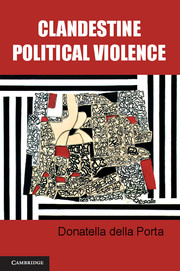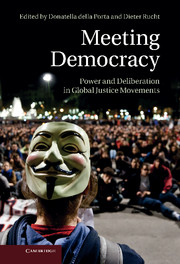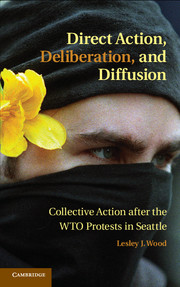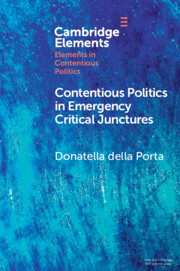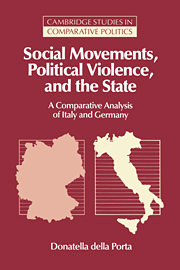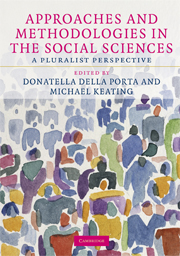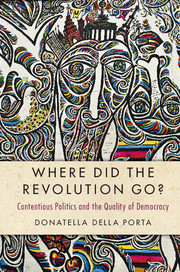Clandestine Political Violence
Clandestine Political Violence compares four types of clandestine political violence: left-wing (in Italy and Germany), right-wing (in Italy), ethnonationalist (in Spain) and religious fundamentalist (in Islamist clandestine organizations). Oriented toward theory building, Della Porta develops her own definition of clandestine political violence. Building on the most recent developments in social movement studies, Della Porta proposes an original interpretative model. Using a unique research design, she singles out some common causal mechanisms at the onset, during the persistence and at the demise of clandestine political violence. The development of the phenomenon is located within the interactions among social movements, countermovements and the state. She pays particular attention to the ways different actors cognitively construct the reality they act upon. Based on original empirical research as well as existing research in many languages, this book is rich in empirical evidence on some of the most crucial cases of clandestine political violence.
- A cross-national comparison of crucial cases of political violence
- Draws upon resources ranging from official government documentation to life histories
- Locates political violence within social movement studies
Reviews & endorsements
“Donatella della Porta’s study takes us a long step forward in identifying causal mechanisms that played a role in the onset, persistence, and demise of clandestine political violence. In her comparative analysis of different forms of political violence, she found striking similarities in the ways these different types of violent movements have developed. Her approach also helps us to understand better how processes at the levels of society, group, and individual interact to foment political violence.”
Tore Bjørgo, Norwegian Police University College
“Adding to her notable scholarly record, Donatella della Porta has produced a work of great intellectual distinction, one that is sure to guide all future study of political violence. Her use of social movement theory to analyze the emergence of violent underground organizations is pathbreaking, and the range of her research extends impressively to extremism on the left and right as well as to groups pursuing ethno-nationalist and religious objectives.”
Martha Crenshaw, Senior Fellow, Center for International Security and Cooperation, Stanford University
“Clandestine Political Violence takes us to the secret world of underground organizations. It shows how, in processes of radicalization, activists begin to accept violence as a political means and organizations go underground. Once underground, these organizations undergo a process of implosion, in which interactions with the outside are reduced. In a comparative design, left-wing, right-wing, ethnonationalist, and religious political violence are studied. In a masterful manner, della Porta describes the mechanisms that underlie the radicalization of political conflicts and sustain clandestine political violence.”
Bert Klandermans, Vrije Universiteit Amsterdam
“Donatella della Porta has done the improbable. She has produced a unified process theory of the dynamics of clandestine violence and applied it to four very diverse phenomena - leftist, rightist, ethnonationalist, and religious violence. Not only that: her richly demonstrated study shows how similar mechanisms power these movements from their emergence in movement/countermovement interaction, to their descent into clandestinity, to their political outcomes. This book will be recognized as the magnum opus of a distinguished career and will be valued by students of social movements and clandestine violence alike.”
Sidney Tarrow, author of The New Transnational Activism and The Language of Contention
"Della Porta, one of the foremost scholars of social movements, turns her attention in this new work to the question of why groups resort to terrorism, or what she terms clandestine political violence … this is a necessary addition to any academic collection on terrorism, political violence or social movements. Summing up: highly recommended."
A. G. Reiter, Choice
Product details
July 2013Hardback
9780521195744
338 pages
235 × 156 × 22 mm
0.59kg
12 b/w illus. 5 tables
Available
Table of Contents
- 1. Political violence and social movements: an introduction
- 2. Escalating policing
- 3. Competitive escalation during protest cycles
- 4. The activation of militant networks
- 5. Organizational compartmentalization
- 6. Action militarization
- 7. Ideological encapsulation
- 8. Militant enclosure
- 9. Leaving clandestinity? Reversing mechanisms of engagement
- 10. Clandestine political violence: some conclusions.

